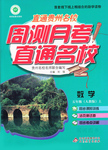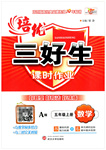题目内容
Once upon a time an African king left his country to make a long trip, and he told one of his guards 1 his treasure room. But the guard was tempted by the riches of the room and began to steal the 2 treasure . He 3 some of boxes of gold and silver and 4 and 5 them with some stones. When the king 6 , he praised the guard for his 7 to duty and sent him away. But before long he 8 what the guard had done. 9 punishing him , he called him back to his 10 and told him a story. He said, “ 11 a snake crawled in a farm house and found an 12 jug of milk . He drank and drank 13 he was 14 fat to crawl back through the neck of the jug. However , what must that snake 15 to get out of the jug? ”
“He must spit out the 16 , ”the guard answered.
“ 17 , ”the king said, “ Should he spit out all of it ? ”
“I think he will 18 spit out all of it to get out . ”
“You are quite right,” the king said. “ 19 ”.
The guard looked around and saw many soldiers with spears 20 back and forth in the palace, he knew everything.
1.A.To observe B.watching out C.to take care of D.to build
2.A.king’s B.palace’s C.gold D.rich
3.A.found B.was food of C.put D.emptied
4.A.treasure B.Jynnsly C.jewels D.the queen
5.A.threw B.managed C.breaking D.filled
6.A.found it B.returned C.reached D.caught him
7.A.devotion B.mistake C.care D.hardship
8.A.excused B.discovered C.permitted D.encouraged
9.A.As B.Instead of C.After D.In spite of
10.A.treasure B.palace C.possession D.duty
11.A.Since B.If C.However D.Once
12.A.big B.useful C.empty D.open
13.A.because B.after C.until D.now that
14.A.too B.rather C.especially D.enough
15.A.do B.drink C.set out D.know
16.A.thing B.jug C.milk D.gold
17.A.No B.Nonsense C.What D.Sure
18.A.try his best B.thus C.in the way D.have to
19.A.None B.Give me C.I’ll kill you D.All of it
20.A.sitting B.walking C.standing D.fighting
1~5 CADCD 6~10 BABBB 11~15 DDCAA 16~20 CDDDB

 直通贵州名校周测月考直通名校系列答案
直通贵州名校周测月考直通名校系列答案 培优三好生系列答案
培优三好生系列答案